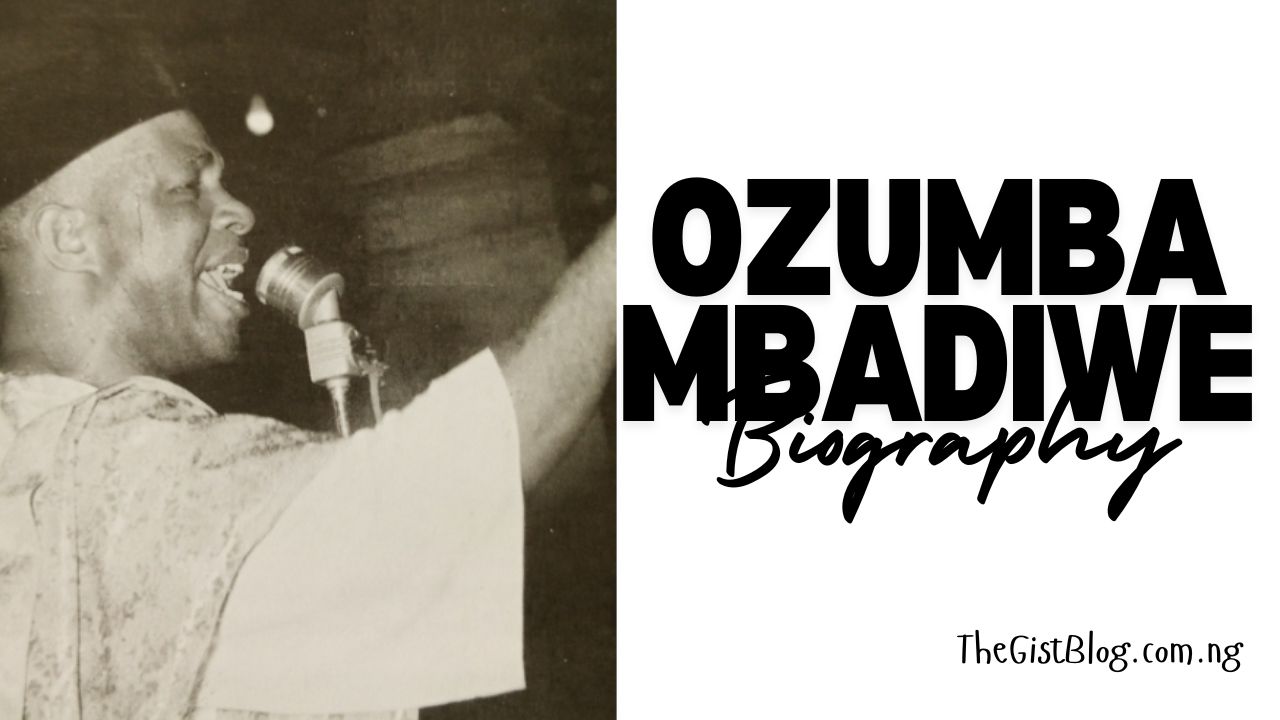Ozumba Mbadiwe Biography – Ozumba Mbadiwe was a towering figure in Nigeria’s political landscape, a visionary leader whose influence extended far beyond his native land. A nationalist, statesman, and diplomat, Mbadiwe played pivotal roles in shaping Nigeria’s independence and post-colonial trajectory. His life, marked by both triumphs and challenges, is a testament to the spirit of a generation of Nigerians who fought for their nation’s freedom and progress.
Ozumba Mbadiwe Biography Summary
| Attribute | Details |
|---|---|
| Full Name | Kingsley Ozumba Mbadiwe |
| Nickname | Ozumba |
| Born | March 15, 1915, Nigeria |
| Died | 1990 (age 75) |
| Occupation | Politician, Statesman, Diplomat |
| Notable Achievements | Key player in Nigerian independence, Minister in First Republic, Biafran Roving Ambassador, Founder of Daily Telegraph |
| Legacy | A revered figure in Nigerian history, known for his charisma, intelligence, and dedication to his country |
Born on March 15, 1915, in Arondizuogu, Nigeria, Kingsley Ozumba Mbadiwe, often referred to as Ozumba, exhibited leadership qualities from a young age. His early education was grounded in Nigerian institutions, including Hope Waddell Training Institute and Igbobi College. However, his intellectual curiosity led him to pursue further studies abroad.
Mbadiwe’s journey took him to the United States, where he enrolled in prestigious institutions like Columbia University and New York University. These experiences exposed him to diverse cultures and ideologies, shaping his worldview and preparing him for the significant role he would play in Nigeria’s political arena.
Entry into Politics
Upon his return to Nigeria, Mbadiwe’s intellect and charisma quickly propelled him into the political limelight. He joined the National Council of Nigeria and the Cameroons (NCNC), a prominent nationalist party, and rapidly ascended the ranks. His oratory skills and unwavering commitment to Nigeria’s independence captivated the masses, making him a formidable force in the anti-colonial movement.
In 1951, Mbadiwe’s political career took a significant leap forward when he was elected to the Eastern Region House of Assembly. His performance in this role showcased his administrative abilities and earned him the trust of his constituents. His rise through the political ranks continued as he was appointed Minister of Lands and National Resources, and subsequently, Minister of Commerce.
The Struggle for Power and the Birth of the Daily Telegraph
Mbadiwe’s ambition and determination were evident in his pursuit of political power. In a bid to challenge the leadership of Dr. Nnamdi Azikiwe, the leader of the NCNC, Mbadiwe and his ally Kola Balogun formed a faction within the party. This internal power struggle led to the establishment of Mbadiwe’s own newspaper, The Daily Telegraph, as a platform to articulate his political views and rally support.
While the attempt to oust Azikiwe was unsuccessful, the experience undoubtedly shaped Mbadiwe’s political philosophy and strengthened his resolve. He remained a prominent figure in Nigerian politics, serving in various ministerial positions and contributing to the nation’s development.
A Pivotal Role in Nigeria’s Independence
Ozumba Mbadiwe was an indispensable asset in the struggle for Nigeria’s independence. His diplomatic skills, coupled with his deep understanding of international relations, made him a valuable negotiator on the world stage. He played a crucial role in mobilizing international support for Nigeria’s self-determination, and his efforts were instrumental in securing the nation’s freedom from British colonial rule.
As Nigeria gained independence in 1960, Mbadiwe continued to serve his country with dedication. He held key ministerial positions, contributing to the nation’s economic and social development. His vision for a prosperous and united Nigeria inspired countless citizens, and his legacy as a founding father of the nation is secure.
The Nigerian Civil War and Beyond
The outbreak of the Nigerian Civil War in 1967 presented a new set of challenges for Mbadiwe. Despite the deep divisions within the country, he sought to play a mediating role, advocating for dialogue and reconciliation. His efforts to find a peaceful solution to the conflict were commendable, although ultimately unsuccessful.
Mbadiwe’s commitment to his people led him to serve as the Biafran Roving Ambassador during the war. This role required immense courage and resilience, as he traveled the world seeking support for the Biafran cause. While the war ended in tragedy, Mbadiwe’s efforts to alleviate the suffering of his people are remembered with gratitude.
In the aftermath of the war, Mbadiwe continued to be a vocal advocate for national unity and reconciliation. He believed that Nigeria’s potential could only be realized through a united front, and he dedicated his remaining years to promoting peace and progress.
Legacy
Ozumba Mbadiwe’s legacy as a statesman, diplomat, and visionary leader endures. His contributions to Nigeria’s independence, his unwavering commitment to his people, and his tireless efforts to build a united and prosperous nation have earned him a place of honor in the country’s history.
Mbadiwe’s life story is a source of inspiration for generations of Nigerians. His courage, intelligence, and determination serve as a reminder of the power of human spirit to overcome adversity and achieve greatness.
